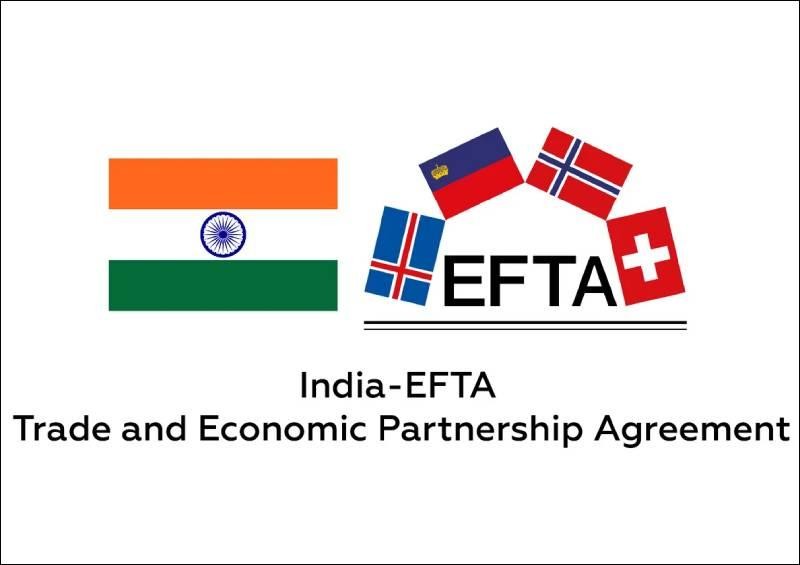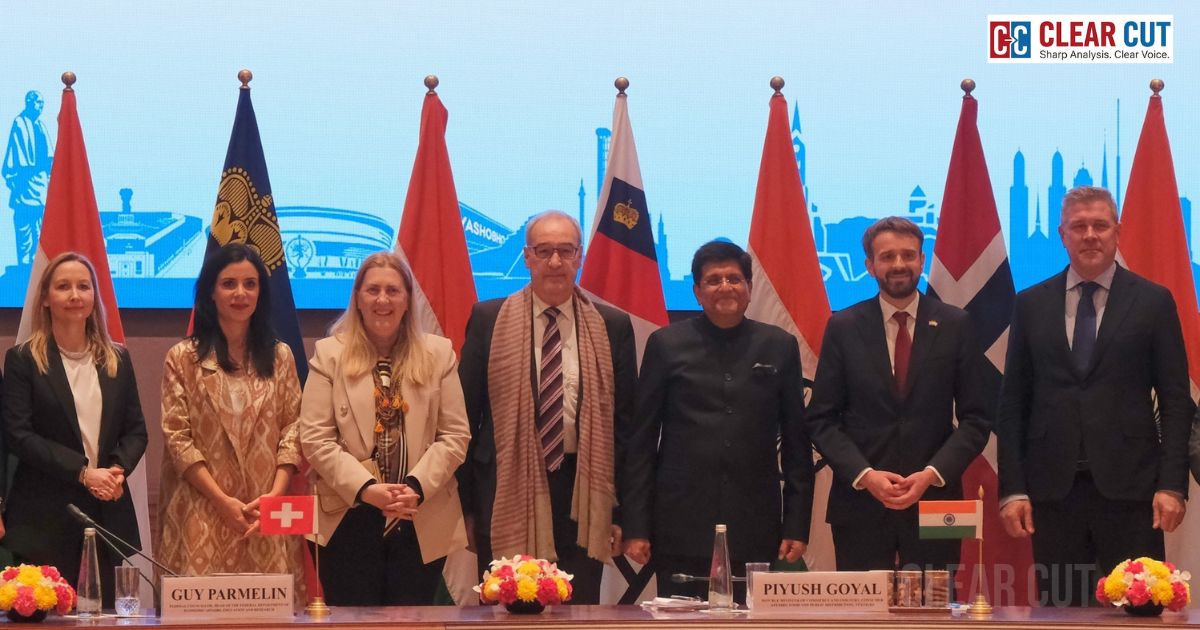Photo Credit : efta.int
Clear Cut Health Desk
New Delhi, UPDATED: Oct 01, 2025 03:20 IST
Written By: Janmojaya Barik
When India and the European Free Trade Association (EFTA) of Switzerland, Norway, Iceland, and Liechtenstein signed the Trade and Economic Partnership Agreement (TEPA) in March 2024, most of the spotlight focused on the large economic figures: a guarantee of $100 billion in foreign direct investment and a million jobs over 15 years. But outside trade balances and tariff regimes, TEPA is likely to leave its greatest impact on India’s social development agenda. It is as much about people as about markets.
Agreement’s Impact and Industries it affects
One of TEPA’s greatest strengths is its focus on the development of skills. India’s workforce is young and aspirational, yet larger population are under-skilled for the industries of the future. By tying investment to training and job creation, TEPA opens up space for technical schools, vocational centers, and apprenticeships that can extend to workers in rural and semi-urban areas. For rural and semi-urban youths, this could be a viable route to more skilled, higher-value, and better-paying jobs. Rather than leaving education and training to play catch-up with the economy.
The environmental chapter of TEPA is directly linked to social welfare too. For the first time in India’s trade diplomacy, sustainability provisions have been made legally enforceable. Investments from EFTA partners are to meet better environmental and labor standards. This concerns communities residing in industrial areas with dirty environments or relying on climate-sensitive livelihoods. Social development is not possible to disconnect from environmental protection, and TEPA also realizes this interconnection.
Healthcare is also an industry that might feel the ripple effect. Switzerland and Norway dominate in the field of pharmaceuticals and biotechnology, while India excels in cheap generic drugs. TEPA creates scope for cooperation between Indian companies and EFTA innovators, and potentially enhance availability of new medicines, vaccines, and diagnostic devices. If well managed, such collaborations can enhance healthcare provision in India, and especially in rural and underserved areas. Improved medicines, quicker diagnostics, and research collaborations will not only enhance patient outcomes but also add to wider objectives such as universal health coverage.
Scope and Opportunities
Social opportunities could also be widened by education and research cooperation in TEPA. As EFTA nations are among the world’s most innovation-fostering economies, collaborative projects in higher education and technical training can lead to new possibilities for Indian students and researchers. Scholarship schemes, institutional partnerships, and exchange of knowledge can lead to a generation of young Indians who are better prepared to face the globalized economy. For most families, this will translate into education-based social mobility — perhaps the most resilient escape from poverty.
Small and medium-sized businesses (SMEs) also have much to gain. By streamlining trade rules and cutting back on barriers, TEPA can assist small businesses to link to new markets. Several of these businesses are family-owned or located in small towns and cities, hiring local employees and fostering community livelihoods. Market access translates into more secure income, local employment opportunities, and less pressure for migration to crowded cities. Improving the strength of SMEs is ultimately a style of grassroots development — it shares the rewards of trade with corporate boardroom managers and extends it out to communities.
Social benefits and need for proper Implementation
The other socially meaningful feature of TEPA is its accountability provision. India has the option to suspend tariff concessions in case the committed $100 billion of investment or creation of jobs benchmarks are not fulfilled. This provision is novel in trade agreements and safeguards the social development agenda by holding out for commitments to deliver tangible gains. For the workers who rely on new jobs or the people expecting training centers, the sense of security that their interests are not secondary comes from accountability.
However, it is up to the implementation of TEPA that its success will be ensured. Job creation will take more than foreign investment; it will take coordination between schools, training institutions, industries, and regional governments. Green investments will take community involvement to have them benefit workers rather than corporate image. Healthcare partnerships will need regulatory certainty and affordable pricing channels. The vision is ambitious, but the ground reality must be managed carefully to avoid gaps between promise and practice.

Photo Credit : Textileinsights.com




